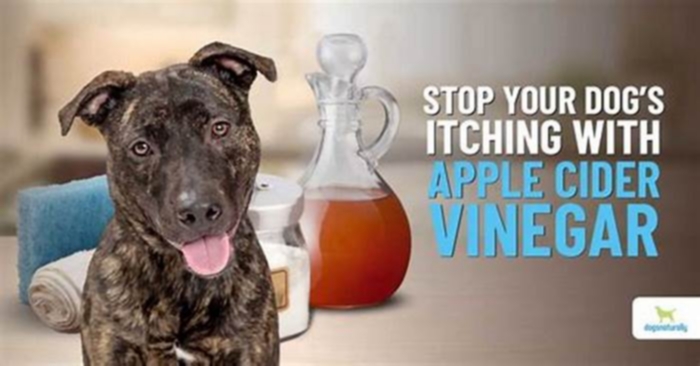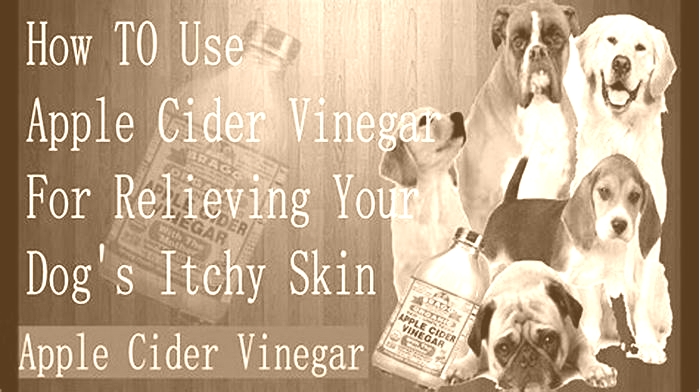Can I spray apple cider vinegar on my dog everyday

DIY Apple Cider Vinegar Spray for Dogs: Benefits and How-To
Apple cider vinegar spray is used on dogs for its natural flea-repelling properties, to soothe itchy skin, and to help improve coat health by restoring pH balance. However, it should be diluted and used cautiously, as undiluted vinegar might irritate the skin.
Key Takeaways
- Using apple cider vinegar spray can enhance the health of a dogs skin and coat.
- It is crucial to dilute the vinegar with water and refrain from applying it to open wounds or cuts.
- The spray can be used once or twice a week to prevent fleas or address specific skin issues.
- Consistently applying the spray can alleviate itchy skin and improve the shine of the coat.

Apple Cider Vinegar Spray For Dogs
Diluted spray of apple cider vinegar can significantly improve your pets skin and coat health due to its natural acidity.
Skin Health
Apple cider vinegar is a go-to solution for maintaining or restoring the optimal pH balance of your dogs skin. The skins natural pH is slightly acidic, and using apple cider vinegar helps maintain this delicate balance, preventing the growth of bacteria and fungi that thrive in more alkaline environments.
Flea Treatment and Prevention
But thats not all. Dealing with fleas can be a hassle, and getting rid of them can be tough. However, apple cider vinegars flea-repelling properties can be a game-changer for you. Fleas dislike the smell and taste of vinegar, so regularly spritzing your furry friend with this acidic concoction makes them less appealing to these parasites.
Soothes Itchy Skin
Youll also notice that the spray can soothe itchy skin, providing relief if your dog has been scratching incessantly. The anti-inflammatory effects of apple cider vinegar calm down skin irritation. Additionally, regular use of apple cider vinegar helps remove soap residue and release trapped dirt and oils, resulting in a cleaner and healthier-looking coat that your dog can flaunt.
How to Prepare Apply Cider Vinegar Spray
To prepare the apple cider vinegar solution, mix equal parts of water and vinegar in a clean spray bottle. It is important to get the vinegar dilution right for the spray to be effective.
If it is too strong, it may irritate your dogs skin. If it is too weak, it may not provide the desired benefits.
Before mixing, make sure the spray bottle is thoroughly cleaned to avoid contaminating the solution. If possible, use filtered or distilled water to prevent any additives or impurities in tap water from affecting the quality of the spray.
Once the bottle is filled with equal parts of apple cider vinegar and water, tightly screw the lid on and shake well to blend the liquids together.
How to Apply Apple Cider Vinegar Spray to Your Dog
To apply the apple cider vinegar spray to your dogs coat, start by parting the fur and lightly misting it. Be careful to avoid the eyes and ears for their comfort and safety. Spray close to the skin, where fleas tend to reside and irritation may occur.
After lightly coating the affected areas, gently rub the solution into the fur to ensure it reaches the skin. Avoid saturating the coat, as the strong scent can be overwhelming and excessive acidity may cause discomfort.
Alternatively, you can apply the diluted apple cider vinegar solution with a soft cloth or sponge. This method gives you more control, especially when dealing with sensitive spots like the face or paws. Dampen the cloth with the vinegar solution and gently wipe it over the coat, still avoiding the eyes and ears.
The frequency of application depends on the purpose of the vinegar spray. If youre using it for flea prevention or to address a specific skin issue, you may need to apply it more frequently, such as once or twice a week.
However, always observe your dogs reaction to the vinegar solution and consult with your vet to determine the appropriate frequency based on your dogs needs. For routine coat health, applying it once every couple of weeks should be sufficient.
Remember that apple cider vinegar is a natural remedy and not a substitute for veterinary care. If your dog has persistent skin issues or fleas, its best to seek professional advice.
Safety and Precautions When Using ACV
When using apple cider vinegar spray, its important to prioritize your dogs safety. While youve already learned the application techniques, its crucial to understand the necessary precautions to prevent any harm. Even though apple cider vinegar is a natural remedy, it can still have potential side effects.
Always Dilute The Apple Cider Vinegar
To avoid skin irritation, always dilute the vinegar with water at a ratio of one part vinegar to one part water.
Never Apply to Open Wounds
Remember that the acidity in apple cider vinegar can cause stinging, so it should never be applied to open wounds or cuts.
Do a Patch Test
If your dog has a history of skin sensitivities, its wise to conduct a patch test first. Apply a small amount of the diluted mixture to a non-sensitive area and wait for any reaction before proceeding with a full application.
Be Cautious Around Sensitive Areas
When spraying apple cider vinegar, be cautious around your dogs eyes, ears, and nose. These areas are sensitive and can easily be irritated by the vinegar. If your dog shows signs of discomfort or distress during the application, stop immediately.
ACV is NOT a Cure All
While apple cider vinegar is known for its flea-repelling properties, its important to note that its not a cure-all. If youre dealing with a severe flea infestation, you may need to consider alternative flea treatments specifically formulated to tackle these pests. Remember, apple cider vinegar is primarily a preventative measure and may not be effective against a large-scale problem.
Above all, prioritize your dogs safety. If youre unsure about using any new treatment, including apple cider vinegar spray, consult with your vet. They can provide guidance and recommend the safest and most effective course of action for your furry friends needs.
Apple Cider Vinegar and Fleas
Managing fleas on your dog can be done naturally with apple cider vinegar spray. This safe and eco-friendly alternative to chemical treatments repels fleas without irritating your furry friends skin or posing health risks.
Apple cider vinegar, known for its acidic properties, creates an environment on your dogs coat that is unattractive to fleas, making it an effective component in natural flea prevention.
To create your own apple cider vinegar spray, mix equal parts water and vinegar in a spray bottle. Before applying it to your dogs coat, perform a patch test to ensure there are no adverse reactions. Once confirmed safe, thoroughly spray your dogs coat, avoiding the eyes and ears. For best results, use the spray before going outdoors, especially in areas where fleas are commonly found.
Remember, flea control involves more than just treating your dogs coat. Regularly wash your dogs bedding, vacuum your home, and keep your yard trimmed to minimize flea habitats. This comprehensive approach ensures that you tackle the flea problem from all angles.
Improving Coat Health With Apple Cider Vinegar
Enhance your dogs coat health with apple cider vinegar spray. This natural remedy is gaining popularity among pet owners who want to maintain their pups coat in a holistic way. Apple cider vinegars acidity helps restore the skins pH balance, resulting in a healthier and more lustrous coat.
Benefits of using apple cider vinegar spray regularly on your furry friend include:
- Balanced Skin pH: Apple cider vinegar restores your dogs skin to a neutral pH level, which is crucial for a healthy coat.
- Reduced Itchiness: The anti-inflammatory properties of apple cider vinegar soothe irritated skin, reducing scratching and preventing coat damage.
- Promoting Shine and Luster: Regular use brings out the natural sheen in your dogs coat, making it look vibrant and healthy.
- Preventing Shedding: While shedding is natural, maintaining a healthier coat with the right pH balance can reduce excessive shedding.
To enjoy these benefits, create a diluted apple cider vinegar solution by mixing equal parts vinegar and water. Spray it onto your dogs coat, avoiding the eyes and any open wounds, and then brush through to distribute the vinegar evenly and detangle the fur. You can do this after a bath or between washes to keep your pups coat in top shape.
Remember that while apple cider vinegar is a fantastic addition to your dogs grooming routine, its not a cure-all. Always monitor your dog for any adverse reactions and consult a vet if youre unsure about its use.
Relieve Itchy Skin With Apple Cider Vinegar
Apple cider vinegar spray is a natural remedy for relieving your dogs itchy skin. Its anti-inflammatory properties can help soothe irritation without the use of chemicals or expensive medications.
To prepare the spray, mix equal parts vinegar and water to prevent potential skin irritation. Shake the mixture well and lightly spritz it onto the affected areas of your dogs skin, avoiding the eyes and any open wounds. For spot treatments, you can apply the diluted vinegar directly with a soft cloth or cotton ball.
Regular application of the spray can provide relief and promote natural healing of the skin. Additionally, apple cider vinegars antibacterial properties can help prevent infections caused by excessive scratching.
Its important to monitor your dogs reaction to the apple cider vinegar treatment. While most dogs tolerate it well, some may have more sensitive skin. If you notice increased irritation or discomfort, stop using the spray and consult your veterinarian. They can suggest alternative solutions or investigate underlying causes of the itchiness.
How Often Should I Spray My Dog with Apple Cider Vinegar?
Apple cider vinegar has antibacterial and antiseptic properties. It is highly acidic and is famous for spraying furry pets such as dogs. Every dog owner should conduct proper research and do a patch test before using any home remedies for their dogs. If you are wondering how often you can spray your dog with apple cider vinegar and if it is safe or not, you are in the right place.
Spray apple cider vinegar once a week on your dogs skin. Its disinfectant and antibacterial properties reduce itchiness, prevent fleas, body odor, and yeast allergies, relieve ear infections, and make your dog feel relaxed. Dilute apple cider vinegar with water before spraying your dog.
You must know what is the right amount of apple cider vinegar for your dog before putting it on its skin or adding it to your dogs diet. Apple cider vinegar can cause some side effects if not used correctly. So, lets learn how to use apple cider vinegar for dog skin, the recommended dosage, its benefits, and its side effects!
Key takeaways
Apple cider vinegar (ACV) is a natural remedy that can be beneficial for your dogs health and hygiene.Regular sprays of ACV on your dogs coat can help keep fleas and ticks at bay, soothe skin irritations, and improve coat shine.The recommended frequency for spraying ACV on your dog is once a week, but this can vary depending on the dogs skin condition and needs.Always dilute ACV with water before spraying it on your dog. A good rule of thumb is a 50:50 ratio.ACV is safe for most dogs, but its always a good idea to do a patch test first to check for any skin reactions.Never apply ACV to open wounds, and avoid spraying it near your dogs eyes and ears.For internal use, always consult with a vet for the correct dosage and to ensure its safe for your dog.While ACV has many benefits, it is not a substitute for regular veterinary care or prescribed medications.
Is Apple Cider Vinegar Good For Dogs Skin?
Pet owners should only use natural remedies having proven and beneficial actions. Apple cider vinegar is one of those substances available at home that helps dog owners in many ways. For centuries, natural remedies including ingredients like ACV have been common for treating pesticides and itchiness.
Apple cider vinegar is safe to use on dogs skin. However, you should make sure that it is raw and organic. Any preservatives present in ACV may kill the advantageous enzymes of ACV. The dog skin requires these enzymes for fighting yeast and other problems.
Moreover, the ACV should be free of any other chemical compounds that might do more harm than good to the dogs skin.
The disinfecting and cleaning properties of ACV prevent many skin issues in dogs. It is safe for topical use but you have to dilute it.
The thing is: Undiluted apple cider vinegar is too strong for the skin.
How Often Should I Spray My Dog With Apple Cider Vinegar?
Apple cider vinegar is strongly acidic having a pH of 2-3. Pure apple cider vinegar may cause burns on the dogs skin. Therefore, you should dilute it in water.
Using apple cider vinegar on a dogs skin every day is damaging to it. Whether you dilute ACV or not, you shouldnt use it on dog fur or skin daily. If your dog is suffering from yeast, itch, fleas, or irritation, spray apple cider vinegar once a week on your dogs fur.
For visible results, keep apple cider vinegar on dog fur for at least 15 minutes. Do this once a week to prevent fleas and irritation.
The recommended dosage for using ACV on a dogs skin is 1 part ACV and 2-4 parts water. The amount of dilution depends upon the seriousness of the issue you are treating.
As apple cider vinegar has highly acidic properties, a small amount of it is enough for keeping fleas and infections away.
Dont make it a routine to spray apple cider vinegar on your dog every week. Only use this natural remedy to treat specific problems mentioned below. When the problem is treated, you can spray ACV occasionally on your dog.
Benefits Of Apple Cider Vinegar For Your Dogs Skin
A dog can benefit from apple cider vinegar spray in multiple ways. But remember to not spray on open wounds as the apple cider vinegar might cause burning and irritation. You should use the recommended dosage of ACV for your dog for a safe experience.
Below are mentioned the top benefits of apple cider vinegar for your dogs skin. So, lets find out!
Relieves Skin Allergies or Itchiness
Apple cider vinegar not only treats yeast allergies but also prevents them in the future. It reduces yeast growth on the dogs skin. So, you can spray it directly on the dogs skin and fur to relieve itchiness.
Yeast infections can cause wounds. So, make sure that these wounds are not open and raw while spraying apple cider vinegar on the dogs skin.
Natural Flea Repellent
The smell of apple cider vinegar stays on dog fur for a long time. Even if you rinse it off, the odor will stay there. It acts as a natural flea and pest repellent and keeps your dog safe from flea infestation.
Having fleas in the fur of pets is the biggest problem that pet owners face. If you are one of them, try spraying apple cider vinegar on your dogs fur.
Prevents And Cures Ear Infection
The buildup of wax or gunk around dog ears is a sign of ear detoxification. If the wax doesnt make the dog uncomfortable or causes any itching, you should leave it alone.
In case your dog is constantly itching its ears due to the wax buildup, clean the ears with apple cider vinegar. Dilute it in water and spray it on a cotton ball. Gently clean the ears of your dog with the cotton ball.
Note: Never pour apple cider vinegar directly into the ears of your dog.
Eliminates Doggie Odor
Apple cider vinegar restores the pH of a dogs skin and acts as a natural odor eliminator for your dog. If your dog smells funny and bathing doesnt help, try spraying apple cider vinegar on your dog. Do this after bathing your dog.
The odor of ACV will keep your dog smelling fresh for a good amount of days while keeping the fleas and infections away.
Helps To Soothe Hot Spots
Apple cider vinegar has cooling and soothing properties. Hot spots form after itching constantly. You can prevent this itchiness by spraying apple cider vinegar on your dog. It will prevent further infections, restore the skins pH, soothe hot spots, and make your dog feel relaxed and comfortable.
Reduces Irritation Of the Paw
The antiseptic and antibacterial properties of ACV come in handy for an irritated dog paw. Dog paws come in contact with various bacteria that can cause infections or irritation on the paw. It makes the dogs feel uncomfortable.
ACV is a good solution to ease an irritating dog paw.
Heres the proper dosage for using apple cider vinegar for dogs as well as some more advantages of apple cider vinegar.
Tips To Safely Spray Your Dog With Apple Cider Vinegar
Administering more than the safe dosage of apple cider vinegar topically or through the mouth of your dog can be harmful. Therefore, you must know how to properly use apple cider vinegar for a dogs skin. So, lets see the step-by-step guide to spraying apple cider vinegar on your dog safely!
Step 1: Make a Spray
Add 1 part of apple cider vinegar to 2-4 parts of water. Put both substances in a spray bottle. Shake the bottle and make sure everything is properly mixed.
Step 2: Give Bath to the Dog
Before spraying the dog with apple cider vinegar. Bath it with your dogs favorite shampoo. Make sure all the shampoo is out of the dogs fur.
Step 3: Spray ACV on Dog
After giving your dog a nice bath, spray the ACV solution on your dogs skin and fur. Rub it on the skin.
If you are treating skin allergies using ACV, make sure the solution comes in contact with the skin. Dogs with hefty furs need special attention during this step as the fur can come in the way.
Let the ACV sit on your dogs skin for at least 15 minutes.
Step 4: Rinse with Water
If your dog is sensitive, rinse the ACV with water after some time. You can do a 24-hour patch test before using apple cider vinegar on your dogs skin.
Various Side Effects Of Apple Cider Vinegar For Dogs
Using too much apple cider vinegar may have some adverse side effects for your dogs. Some of the common side effects include:
- If you are adding ACV to the dogs diet, it can cause gastrointestinal problems such as constipation, diarrhea, vomiting, nausea, etc.
- Undiluted or higher concentrations of ACV than water can cause chemical burns on a dogs skin.
- Too much ACV can irritate the skin of your dog instead of soothing it.
- Any open wounds on your dogs skin can become worse after spraying ACV directly onto them.
Heres a chart for a safe dosage of ACV for ingesting by dogs! You can add ACV to your dogs food for different benefits.
Dog Weight | Quantity of ACV |
|---|---|
15 lbs | 1 tsp. |
16-35 lbs | 2 tsp. |
36-84 lbs | 1 tbsp. |
Final Thoughts
Now that you know how often you can spray your dog with apple cider vinegar, you can safely treat problems like allergies caused by yeast, itchy skin, itchy ears, irritated paws, unbalanced skin pH, etc. the key is to use the right amount of ACV otherwise it can do more harm than good for your dogs skin. Diluting ACV is important before spraying your dog with it as it is highly acidic.









